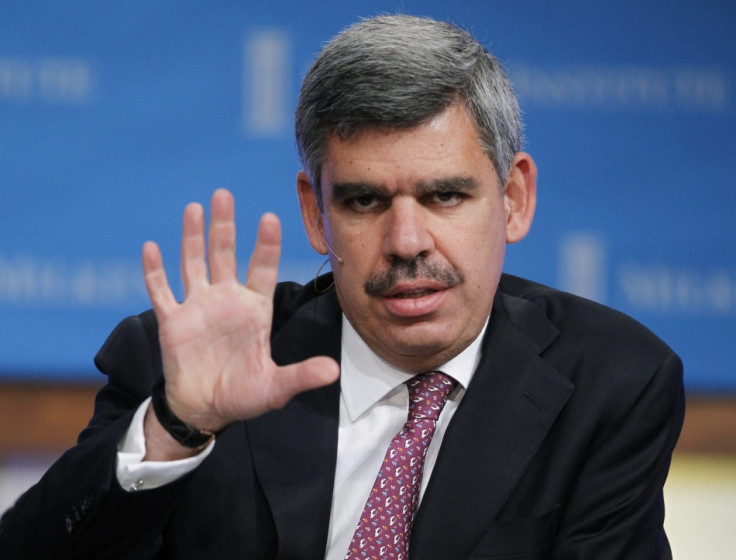PIMCO's Mohamed el-Erian Tipped to be Next Egyptian Prime Minister

Mohamed el-Erian, the head of the world's biggest bond fund, is tipped to be the next Prime Minister of Egypt, according to report published today in the Arab-language Al-Watan newspaper.
PIMCO CEO el-Erian's name is said to be among the leading candidates for the post now being contemplated by newly-elected president Mohamed Mursi, according to a Freedom & Justice party source quoted in the report. The Cambridge and Oxford-educated el-Erian was born in the United States but holds dual US/Egyptian citizenship and has been actively involved in the Egyptian election process as regular commentator in local and international media.
However, the appointment comes amid a simmering political turmoil between the Freedom & Justice party, which has close ties to the Islamist Muslim Brotherhood, and Egypt's military rulers, who, with the permission of the nation's courts, shut down Parliament and refused Mursi's persistent attempts to reconvene it.
Calls to PIMCO's public relations team in London were not immediately returned.
El-Erian has been with Newport Beach, California-based firm since 1999, although he did spend two years as CEO of the Harvard Management company overseeing the university's endowment and related accounts. Pacific Investment Management co, or PIMCO as it's more commonly known, is the world's largest fixed income investment firm with around $1.77tn in assets under its management.
He also spent 15 years with the International Monetary Fund in Washington; a role that would be of tremendous assistance to Egypt as it begins negotiations for $3.2b in loans the Fund has said must be tied to broader reforms in its political and economic programmes.
"Egypt must take immediate steps to stabilize its economic and financial situation," el-Erian wrote recently in the Cairo Review of Global Affairs. "Key impediments to regaining pre-revolutionary production and employment levels must and can be removed. Legal and operational uncertainties, many of which have been associated with the abuse of existing procedures, should and can be minimized. Also, and notwithstanding the admirable and correct aspiration for self-reliance, the country needs to consider whether and how to quickly mobilize sufficient external financing on appropriate terms. "
Egypt has around $15.5bn in foreign currency reserves, around half of what it held prior to the ouster of former President Hosni Mubarak in February of last year. Economists polled by Reuters expect Egypt to grow by around 3 percent in the fiscal year that ends next June as tourism beings to recover after the violence of last year's uprising. However, as inflation surges to a reported 8.5 percent and that nation's youth finds employment increasingly difficult, the improved pace of growth is still unlikely to deliver the kind of stability the IMF will need before it can sign off on the loan.
Egypt's Central Bank sold 6bn pounds ($989m) in Treasury bills Sunday with yields of just under 15 percent.
© Copyright IBTimes 2025. All rights reserved.





















